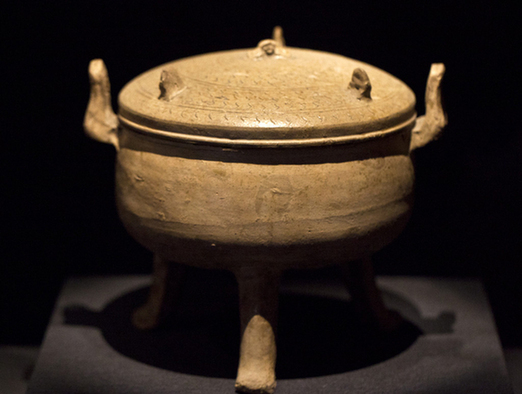Liangzhu Culture

[Photo from en.gotohz.com]
The origin of Hangzhou can be dated back to the Neolithic Age. Throughout its long history, various cultures have settled here including the Liangzhu culture.
The Liangzhu culture is an important branch of Chinese ancient culture in the Yangtze River Delta. It was named after Liangzhu town, Yuhang county, Hangzhou city where it was first discovered. Archaeological findings in Liangzhu Town indicate about 5,300 years ago a primitive tribal village once prospered on this fertile land. Villagers made a living by hunting, cultivating rice, and fishing. Among the archeological findings, the most representative one is black pottery ware pieces. Porcelain was also discovered, showing beautiful patterns and shapes with fine workmanship and finely-crafted ritual jades. The discovery of spinning wheels in this area has proven the existence of a thriving culture of weaving. This discovery indicates Hangzhou has a long history of weaving and is aptly named the Home of Silk. Various plant and animal remains are some other archaeological treasures found. These findings reveal that in Liangzhu culture, agriculture, fishing and hunting were important. These practices laid a solid foundation for Hangzhou to become a "food paradise".

 Print
Print Mail
Mail
 20 Cultural Symbols
20 Cultural Symbols Why Zhejiang
Why Zhejiang Experiencing high-tech products at WIC
Experiencing high-tech products at WIC Zhejiang Release
Zhejiang Release Zhejiang News
Zhejiang News